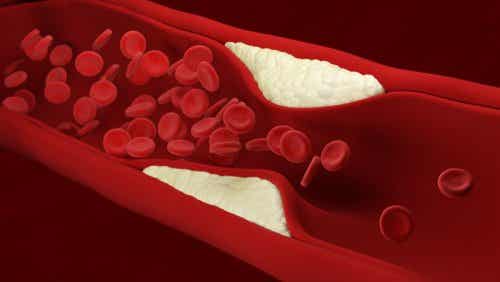Twicor: The Polypill to Treat Cholesterol

Twicor is a medicine that is made up of two different active substances. It’s a drug that helps regulate cholesterol in a way that reduces LDL or bad cholesterol.
One of the active substances in Twicor is rosuvastatin, which belongs to a group of statins. The other active ingredient is ezetimibe, which also acts on cholesterol. Both compounds in a Twicor tabled can lower cholesterol.
How does Twicor work?
This medicine is made to regulate the levels of LDL cholesterol and triglycerides in the blood. In addition, it increases the levels of good or HDH cholesterol.
To carry out its effect, this medicine works by lowering cholesterol in two ways. On one hand, it reduces fats that your digestive tract absorbs. On the other hand, it acts on the body’s own cholesterol production.
In general, high cholesterol levels don’t cause symptoms in most people. Therefore, you need to check it regularly. if left untreated, it can build up on the walls of your blood vessels.
These cholesterol deposits end up narrowing the blood vessels, which causes a vascular condition called atherosclerosis.
Sometimes, these affected vessels block blood flow. That way, it cuts off the blood supply and the heart and brain don’t get the blood they need. If this happens, it triggers a heart attack or a stroke.
With Twicor treatment, cholesterol levels are controlled and the risk of a heart attack or stroke decreases. We can say that this drug contributes to reducing cardiovascular risk.

Who is it suitable for?
This medicine is used in cases where you can’t control your cholesterol levels by changing your diet. However, Twicor isn’t a drug to help you lose weight, and you can’t use it to reduce body mass.
The recommended daily dose is one tablet, and you can take it any time, but separate from meals. Don’t forget to see your doctor regularly to check your cholesterol levels.
If for any reason you need to stop using Twicor, you should consult your doctor before doing so. When you stop treatment, cholesterol levels can go back up.
You may also be interested in: A Guide to Help You Watch Your Cholesterol Levels
Possible side effects

As a medicine, Twicor can cause side effects. However, not everyone that uses this drug suffers them in the same way or the same amount.
Depending on the frequency of the side effects, they are classified as follows:
- Frequent adverse side effects of Twicor: Among the possible side effects that appear most frequently are headaches, fatigue, myalgia, and elevated blood sugar levels. Also, you can experience gastrointestinal problems like diarrhea.
- Other rare or very rare side effects: These include allergic reactions with swelling of the face, lips, tongue, and throat. Rhabdomyolysis is a more severe muscle condition that some active ingredients of the statins can produce. This adverse effect appears with fever and kidney disorders.
In addition, other side effects you may experience are those associated with Stevens-Johnson syndrome, which is an allergic reaction that can be fatal. It appears in ulcers and blisters on the skin, eyes, mouth, and genital area.
Also read: How To Reduce Cholesterol with Garlic: 3 Home Remedies
Twicor is an alternative
Twicor is an alternative to consider when other treatments don’t regulate your cholesterol levels. However, you should always follow guidance from a specialist about the dose and duration of treatment.
All cited sources were thoroughly reviewed by our team to ensure their quality, reliability, currency, and validity. The bibliography of this article was considered reliable and of academic or scientific accuracy.
-
Pérez Díaz, I., Sánchez Argaiz, M., & Sánchez Gómez, E. (2011). Posible rabdomiólisis mortal por rosuvastatina. Farmacia Hospitalaria. https://doi.org/10.1016/j.farma.2010.12.001
-
Ramirez, A. (2010). Rosuvastatina. Circular Farmaceutica. https://doi.org/10.2165/11204600-000000000-00000
-
Ros, E. (2006). Doble inhibición del colesterol: papel de la regulación intestinal y hepática. Revista Española de Cardiología Suplementos. https://doi.org/10.1016/s1131-3587(06)75329-8
This text is provided for informational purposes only and does not replace consultation with a professional. If in doubt, consult your specialist.








